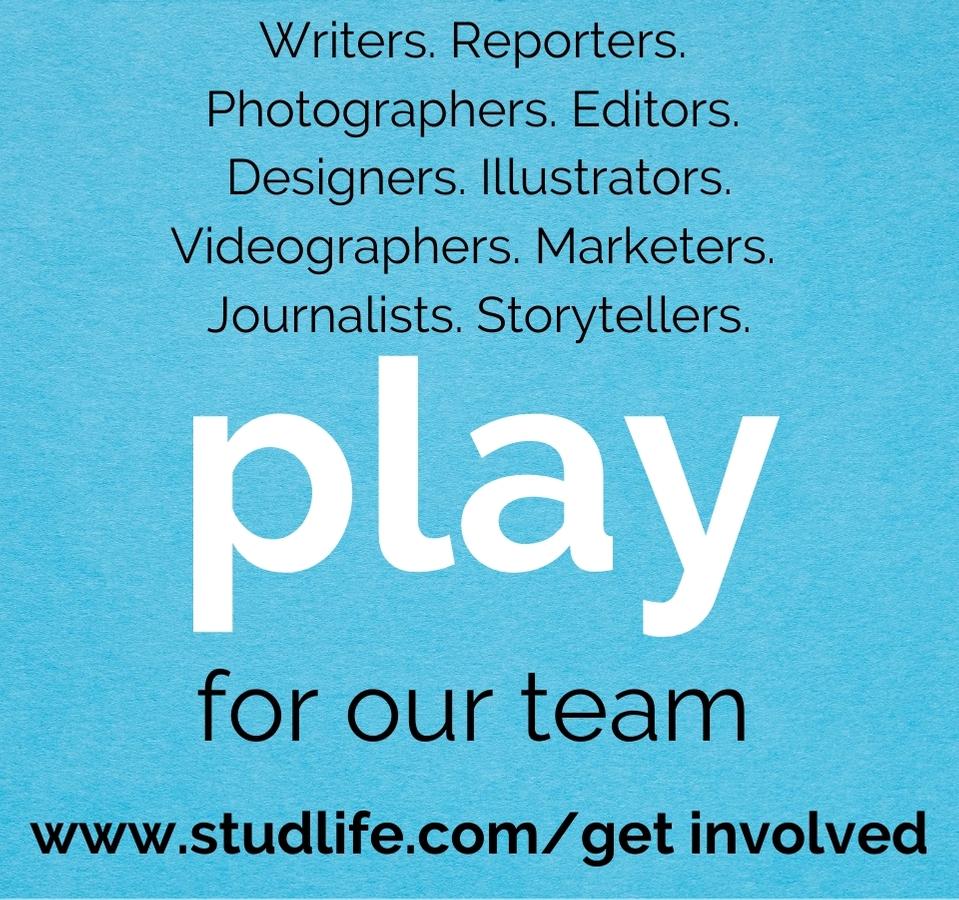BRENDA SONG
“Suite Life” actress speaks with students on campus (News, pg 2)
TAKING HOME A TROPHY WuRaas ranks 13th nationally (Scene, pg 5)

SOFTBALL Softball wins against Carnegie Mellon before hitting the road.

(Sports, pg 7)

“Suite Life” actress speaks with students on campus (News, pg 2)
TAKING HOME A TROPHY WuRaas ranks 13th nationally (Scene, pg 5)


(Sports, pg 7)
On Tuesday, April 11, popular hip-hop artist Flo Milli was announced as the headliner for Spring WILD. The event will take place on Mudd Field on Friday, April 28th, according to the Student Programming Board (SPB).
An Instagram video posted by SPB stated that Milli would perform at the 50th anniversary for the semiannual concert. The
announcement comes after last semester’s WILD was canceled due to capacity and crowding concerns.
SPB president Miri Goodman said that the group is “really excited. There have been countless hours of hard work done by the WILD team and it seems like the hard work is paying off,” she said.
Goodman also addressed past safety concerns about overcrowding, explaining that SPB communicated with campus partners to find a solution.
“Mudd Field ended up being the best option because it is a large field that can hold a lot of people,” she said.
At past concerts, students have not been allowed to re-enter the venue once they have exited. To mitigate that from happening on Mudd Field, Goodman said there will be 6-foot-tall fences and bike racks lining the perimeter of the field in addition to extra venue security specifically tasked with preventing students from reentering after they leave.
Goodman also said that
wristbands would be passed out as people entered the venue space to keep the event limited to only the WashU campus community. She said that more information about the wristbands would be released in the next ten days.
Peggy Hermes, Associate Director of Campus Life, described how this semester, there will be a T-shaped stage, unlike the usual flat-facing stage in Brookings Quadrangle. She said that this is a “considerable adjustment to the stage layout,” but thinks it will help prevent
students from being pressed up against the barriers. Hermes also mentioned that SPB is working with a new security company, which “specializes in crowd control and concert management on college campuses.”
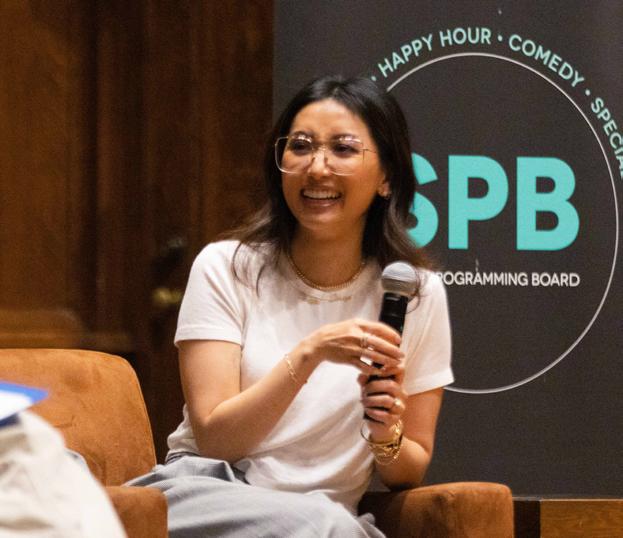
Despite the new stage structure and security, Hermes reminded students that they “should make safe and healthy decisions that night especially as it pertains to listening to volunteers and following signage so it can be [a] safe and fun [event] for everyone.”
ZACH TRABITZ JUNIOR NEWS EDITOR
For the first time in 100 years, Washington University is creating a new school division: the School of Public Health.
The School of Public Health will be formed by combining existing aspects of Public Health across the University. The educational programming will include a master’s degree and doctoral program along with a new undergraduate major in public health.
CLARA RICHARDS | STUDENT LIFE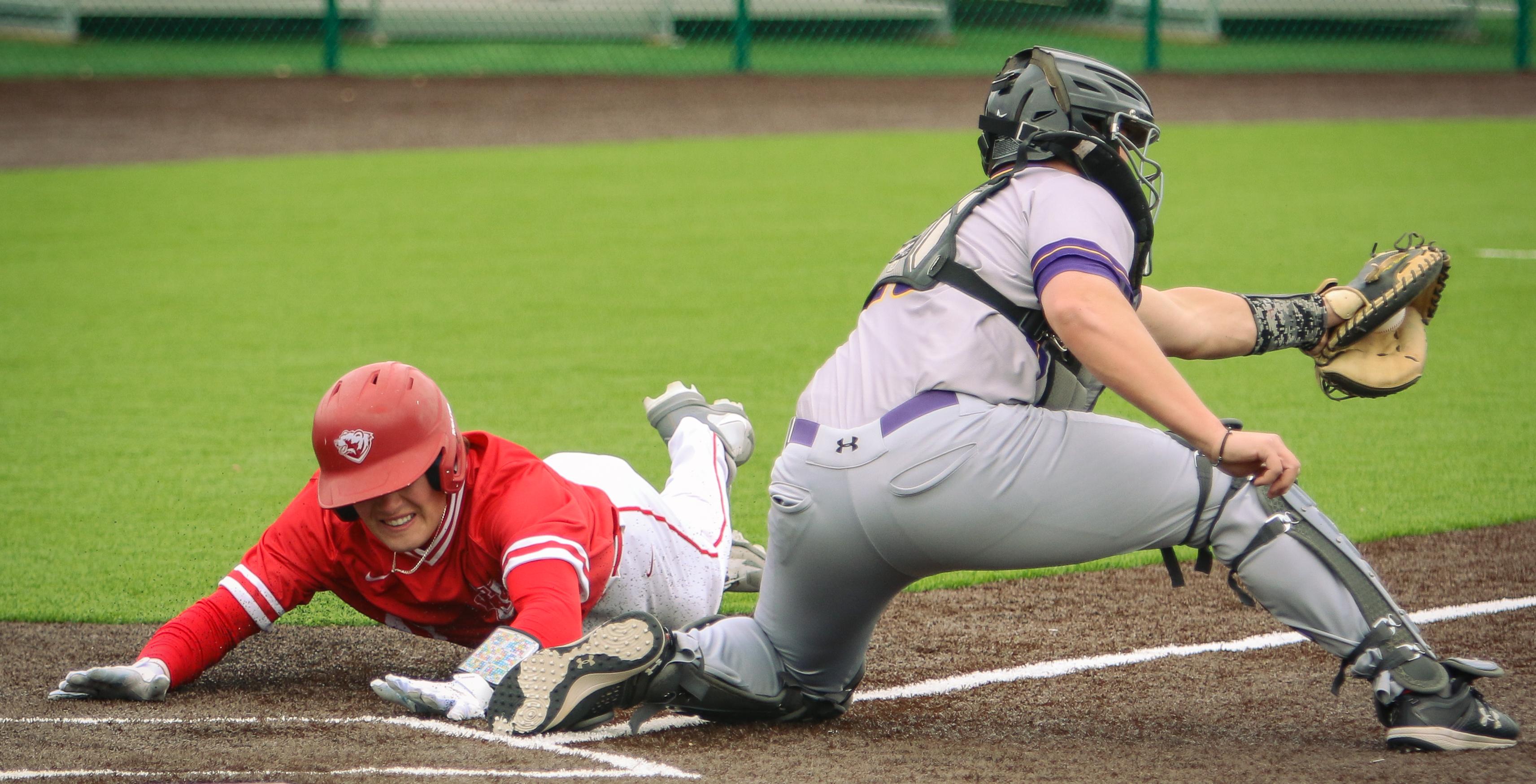 IAN HEFT SPORTS EDITOR
IAN HEFT SPORTS EDITOR
Freshman Shane Pellegrino had dreamed of this moment for years. Standing on third base with two outs in a 2-2 ballgame, the freshman shortstop was ninety feet from scoring the go-ahead run. With the Statue of Liberty overlooking the field from across New York Bay, the city skyline serving as a backdrop for the Friday evening game and barge horns blaring in the background, Pellegrino darted back and forth as he led off third.
“I’ve been thinking about playing college baseball since I was five years old. This was really a dream come true for me,” said Pellegrino after the game.
He would ultimately score on
a balk – not exactly a pretty way to take the lead, but giving the Bears a one run advantage in the eighth inning of the game, one of a pivotal series versus New York University (NYU). The Bears would go on to win the first game 4-2 and ultimately take three of four from NYU. One year after narrowly avoiding a home sweep to Violets, WashU looked dominant after making the trek out to Staten Island, New York.
“It’s so big to take three out of four on the road at NYU,” said head coach Pat Bloom. “It’s hard — to say the least — to win three out of four against anybody in our league. But on the road, it’s especially difficult.”
This season, WashU’s wins haven’t always been pretty, with the team fighting for late leads.
Yet with a scrappy, next-man-up mentality, the team has gotten runs across the board at the right time. Led by veteran poise and the emergence of an impressive underclassmen class, the squad has hit its stride as it heads into the home stretch of the season.
“Guys who aren’t on board, they’re just not going to play,” said catcher and senior captain Hunter Goldberg on the team’s playstyle.
“For lack of better words, we’re just being dogs. You know, not letting anyone take us off the field. We’re the top dogs on the field. That’s how we want to play.”
WashU has been the top dogs as of late, winning nine of their last thirteen games. They currently sit at second in the University Athletic Association (UAA) but have the best composite record of any team
in the conference. Their 21-8 record is a dramatic turnaround from their 12-24 finish last year.
Their performance on Saturday was perhaps most impressive, taking both games of the doubleheader. The Bears jumped out to an early lead in the first game after sophomore Brandon Buday drew a walk, advanced to second on a wild pitch, stole third and scored on Pellegrino sac fly. WashU added two more runs in the third, but the Violets tied the score up with a three run sixth inning. In the seventh, Buday struck again, leading off the inning with a solo home homerun. The Bears added five more runs in the final two innings to go up 9-3, while freshman Miles
SEE BASEBALL, PAGE 8
The school will have a particular focus on educating students about intersecting factors of public health — such as environmental health factors and racial disparities in healthcare — and developing equitable routes to provide healthcare.
The College of Arts and Sciences will be involved in the development of the undergraduate major, and there are tentative plans to house the new major in Arts and Sciences. This plan would avoid the issue of having to create new requirements for an entirely separate undergraduate school while still utilizing the new school’s pooled resources.
Faculty, staff, and students are all actively involved in the process of making different key decisions, such as determining how to best coordinate new education programs. Although the University plans to transition some graduate programs to the new School of Public Health, administrators want to ensure continuity in delivering existing programming for master’s and Ph.D. students.
The new school is planned to
SEE SCHOOL, PAGE 7
Student Union’s (SU)
Constitutional Council determined that SU Treasury demonstrated political bias when representatives chose not to fund a speaker appeal from the Washington University College Republicans (WUCR), a violation of SU’s Constitution, in a unanimous opinion released on April 5.
WUCR requested nearly $7,000 from Treasury to bring conservative economist Dr. Arthur Laffer to campus. After deliberation by Treasury representatives, they
decided not to fund the event.
After attending the Treasury meeting, freshman Tim Mellman brought the issue to Constitutional Council, SU’s judicial body composed of five undergraduate students. The Council accepted his request and ruled in their nineteenpage opinion that Treasury violated Article 14, which states, “All constituents shall be given equal opportunity and equal treatment under the rules, regulations, law and Constitution of Student Union.”
A day after the opinion was released, the constitution was amended by a vote from the student body during the SU election,
changing Article 14 so that it is now framed around equity as opposed to equality. The article now reads: “All constituents shall be given equitable treatment under the rules, regulations, law, and Constitution of Student Union.”
Freshman Meris Damjanovic, a Treasury representative who testified at the Council’s hearing, stated that he was interested to see how the opinion would be impacted by the fact that the Article it cited was substantially changed.
“I understand how they came to their conclusion based on the constitution as it stood at the time, but obviously, it has changed,” he
said. “A large part of this was based on Article 14, which was the equality clause and is now the equity clause.”
The council’s opinion began with a summary of why Treasury was in violation of Article 14 and noted that moving forward, the Council will be able to use their ruling on the WUCR appeal as precedent to help inform other interpretations of the constitution.
“As a matter of constitutionality, Treasury cannot deny funding for an event on the basis of political discrimination pursuant to the equality clause of the constitution,” the opinion reads. “In this case, the Council finds that Treasury’s
decision created a differential outcome and contained pervasive malice, negligence, or other unusual circumstances.”
In his request, Mellman wrote the assumption made by treasurers that Laffer would potentially say something racist or bigoted could constitute discrimination on the basis of political leaning, which he believed could violate the constitution.
While the opinion ruled that Treasury had engaged in political discrimination, it did not outline a standard for what constitutes
so their votes are more well-informed.
Twenty-nine point two percent of Washington University students voted for Student Union (SU) this year, a 6% increase from the 23.4% that voted in the Spring of 2022.

The increase in voting can be attributed to changes in the voting platform, increased social media presence, and a new co-campaigning policy. In addition to increasing voting turnout, SU had more students run for Treasury this year than for Senate.
Election Commissioner, Junior Constantin Carrigan, partially attributes the high turnout for SU Treasury to the “blowback” Treasury received for their funding decisions this year, such as funding conservative commentator Amala Ekpunobi.
Carrigan said that the overall uptick in voting can be linked to the Election Commission’s decision to switch voting platforms from WashU Group Organizer (WUGO) to the faster and more streamlined BigPulse Voting to improve the voter experience.
“The new platform is very quick to vote on,” Carrigan said. “It’s a 30-second ballot.”
Carrigan also said that SU has made efforts to increase the number of voters and to do more online outreach to students
“We did do a lot more when it comes to making sure emails are sent out,” Carrigan said. “We had a lot better social media presence than we’ve ever had before on the SU social media.”
According to Carrigan, however, the biggest factor in increasing voter turnout was likely a new election policy allowing co-campaigning that began this year. Co-campaigning, often referred to as slating, is when multiple candidates run together on a slate, though voters retain the ability to vote for individual candidates regardless of slate.
Carrigan said using slating in this year’s election was a “massive success” in increasing voter turnout and improving voter experience.
Although slating is not used in many official governmental elections and is criticized by some for encouraging individuals to vote along party lines rather than for individual candidates, Carrigan believes it is useful for SU’s elections since they lack political parties.
Carrigan also said that slating is beneficial for internal SU operations.
“[Co-campaign partners] learned to work together over these past few weeks in order to get their campaigns off the
ground,” Carrigan said. “Now, I think they’ll walk into a situation with a lot more cohesion, no matter who wins.”
However, student groups who endorsed candidates frequently endorsed candidates from different slates, indicating that Washington University students did not entirely stick to slates.
First-year Elena Wierich said that she didn’t adhere to slate voting in this election and instead chose candidates based on their individual platforms. She said that she sees the value in slating, though.
“If I had had somebody who I had a connection to in one of the groups, then I probably would have voted for everybody in the group,” Wierich said. “That just didn’t happen.”
Although overall voter turnout increased from last year to this year, students aren’t required to vote for each position, so they often skip some, according to Carrigan. The highest voter turnout is for SU President.
Carrigan said that the SU Election Commission hopes to increase voter turnout by connecting more with students through social media and providing additional resources to make voters more informed in the coming years.
Wierich said that SU could better emphasize the difference between
Actress Brenda Song spoke about her life and career in the entertainment industry during a conversation in Graham Chapel sponsored by the Student Union’s Social Programming Board in collaboration with the Asian Multicultural Council, April 10. Growing up in a ThaiHmong family near Sacramento, Calif., Song began her acting career at 5 years-old in a variety of television commercials. She had her breakthrough after being cast as London Tipton, a popular character on Disney Channel’s “The Suite Life of Zach and Cody.”
Song went on to appear in a variety of children’s programming, including “Wendy Wu: Homecoming Warrior” and “College Road Trip,” before getting a degree in psychology from the University of California Berkeley and then continuing acting into adulthood, with roles in films such as “The Social Network” and “Changeland.”
Before the event, a long line of students formed outside of Graham Chapel. Song began the conversation by talking about her childhood, describing that she was grateful for her tight-knit Asian community and supportive family who encouraged her to pursue her dream from a young age.
She extended that same encouragement to the students in the audience
“If you really have passion for it and you have worked really hard to pursue those goals,” Song said. “Do it — it doesn’t matter what it is or who you are or where you are.Just go for it.”
Song recalled growing up in an era when stereotypes about Asian Americans were common, acknowledging that Disney Channel looked beyond conventional
casting when they hired her to play Tipton, a wealthy heiress known for her ditzy demeanor and constant jokes.

“I was just very lucky to deal with a company that was doing colorblind casting at the time,” Song said. “They were way ahead of the curve; they were trying to send a message out to children to show that media should reflect what the world actually looks like.”
When the moderators brought up the critically acclaimed movie “Everything Everywhere All at Once,” a comedydrama that made waves after being released in 2022, Song reflected positively on the Asian-led cast.
“It’s absolutely wonderful because growing up I didn’t get to see myself represented in TV and in film,” Song said. “The thing that is great about [Everything Everywhere All at Once] is not that it has an Asian-lead cast — it was just a good f*ckin’ movie, period.”
She said Asian representation in the entertainment industry is crucial in building the presence of Asian Americans in media and the country.
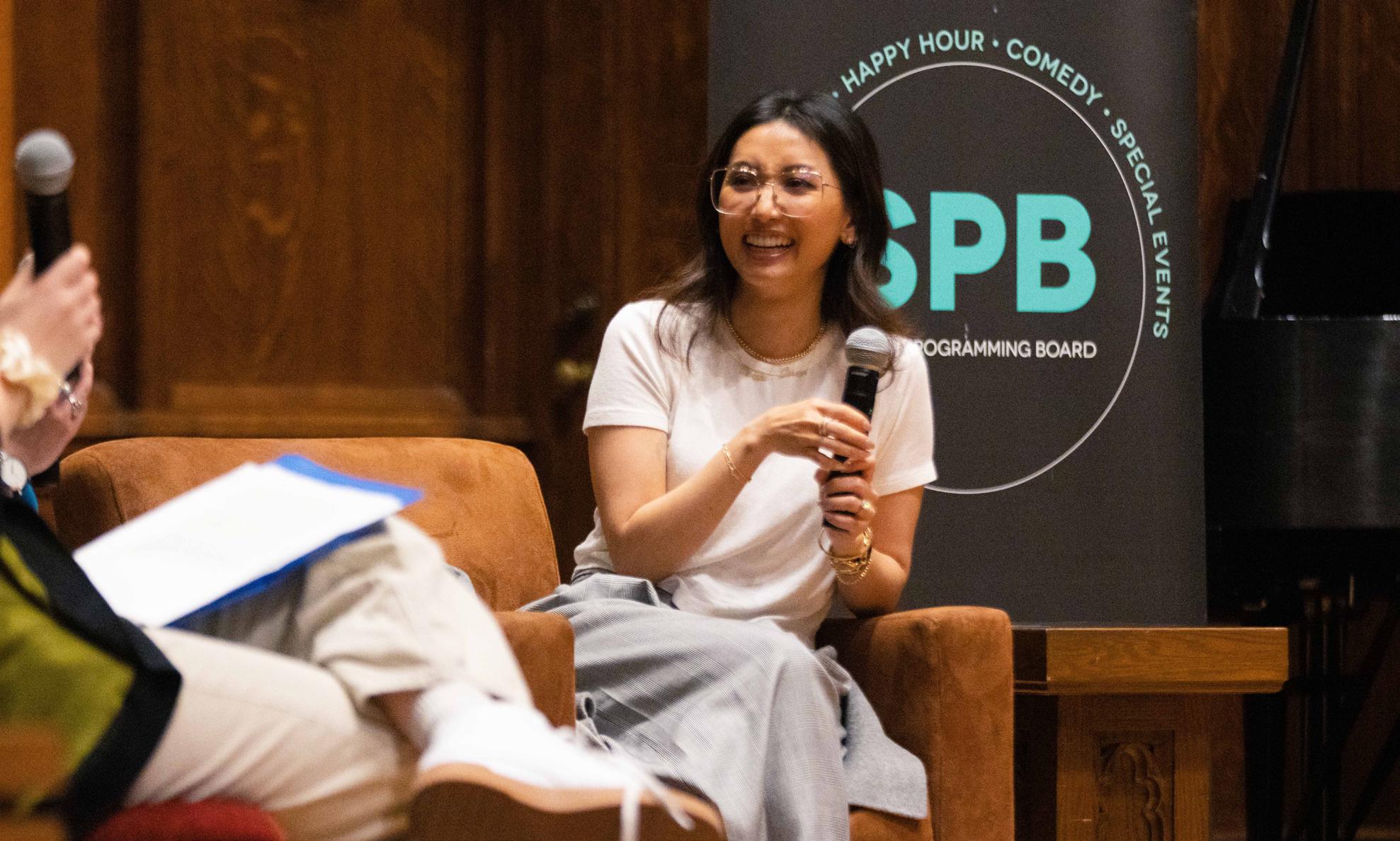
“We are the source of all our stories that should be represented in the media,” Song said. “For me, it’s just to keep pushing to be fighting for our stories — to be told to not just be behind the camera, but behind the scenes.”
Song reflected on being asked whether she would feel comfortable playing a Chinese American role, which implicitly supports the underlying belief that people of certain descent can only play roles of that specific descent.
Song said that there is no discrimination against overseas white actors to play a white American role, but there are often double standards against Asian actors, such as a
Thai-Hmong actress playing a Chinese character.
As a woman of color, Song said she is pleased to see the progress in terms of the gender dynamics between women and men.
“For a long time, [Asian women] weren’t even regarded as romantic … we were the girlfriend’s best friend’s friend,” Song said. According to Song, seeing women of color assuming important roles on the screen is a step in the right direction. In addition to recounting the story of her life, Song also offered words of support to the student body.
“Sometimes things don’t happen the way you expect them to, but they always happen in the way they should,” she said. “If you’re the first person to do [anything], be the first person to break that barrier — be a tomahawk — because if you don’t do it, the person next to you will.”
She went on to say that it was okay to not have everything planned out, encouraging her audience to be open to anything.
“That’s my big advice — it is all going to be okay,” Song said.
First-year Ashton Lee said that he enjoyed listening to Song’s story and that it was a contrast to the University’s usual competitive nature.
“We’re a very competitive school — we worry about school all the time, and as she said, sometimes you just have to chill out, and enjoy life, and I think that’s very important,” Lee said.
First-year Eden Patterson said she appreciates that the University gives students opportunities to see celebrities from their childhood.
“She’s definitely the first Asian I’ve seen on TV — and seeing someone from your childhood in real life, there are no words to describe it — it’s really cool,” Patterson said.
Members of the Student Union (SU) Treasury and Senate held internal elections to determine which members would serve in leadership positions for the upcoming school year on April 11.
Sophomore treasurer Sadie Karp was elected as the new Speaker of the Treasury, first-year Meris Damjanovic as Activities Committee Chair, and sophomore Leena Rai as Budget Committee Chair. Each senator running for a leadership position ran unopposed. Senators elected Junior Erin Ritter to be the Speaker of the Senate, and first-year Sonal Churiwal to chair the Diversity and Inclusion Committee. Sophomore Emilia Santana was elected to
chair the Academic Affairs Committee, sophomore Braeden Rose to head the Health and Wellness Committee, and first-year Da’juantay Wynter was re-elected as Campus and Residential Experience Chair.
Elections took place in a closed internal meeting directly after new SU members were inaugurated into their positions, and the results of all elections were announced via Instagram posts later that evening.
Junior Mishka Narasimhan, previously the Speaker of the Treasury who was elected as Vice President of Finance on April 5, said that Karp is “going to do a great job.”
Narasimhan expressed hope that the new executive members would make weekly Treasury meetings shorter and more efficient
and work to have consistent funding decisions.
“When student groups come into Treasury sessions, [they] should be able to pretty much predict exactly how [they] will be funded,” she said. “We want our policies to be as clear and as straightforward as possible.”
Ritter, who was previously the Chair of the Health and Wellness Committee on Senate, confirmed that all senate elections were uncontested and explained that as Speaker of the Senate, she will meet with all chairs once per week and organize Senate meeting agendas. She also plans on encouraging senators to work with student groups more directly to make sure “that Senate is as accessible as possible to its constituents.”
JIMMY HU STAFF WRITER VIA POOLOS EDITOR-IN-CHIEF BRI NITSBERG | STUDENT LIFE The Social Programming Board brought actress Brenda Song to speak at Graham Chapel.ALIZA
Washington University’s Sumers Recreation Center is now requiring gymgoers to wear disposable wristbands on random days inside the facility to address mounting security concerns. The initiative went into effect as of March 25.
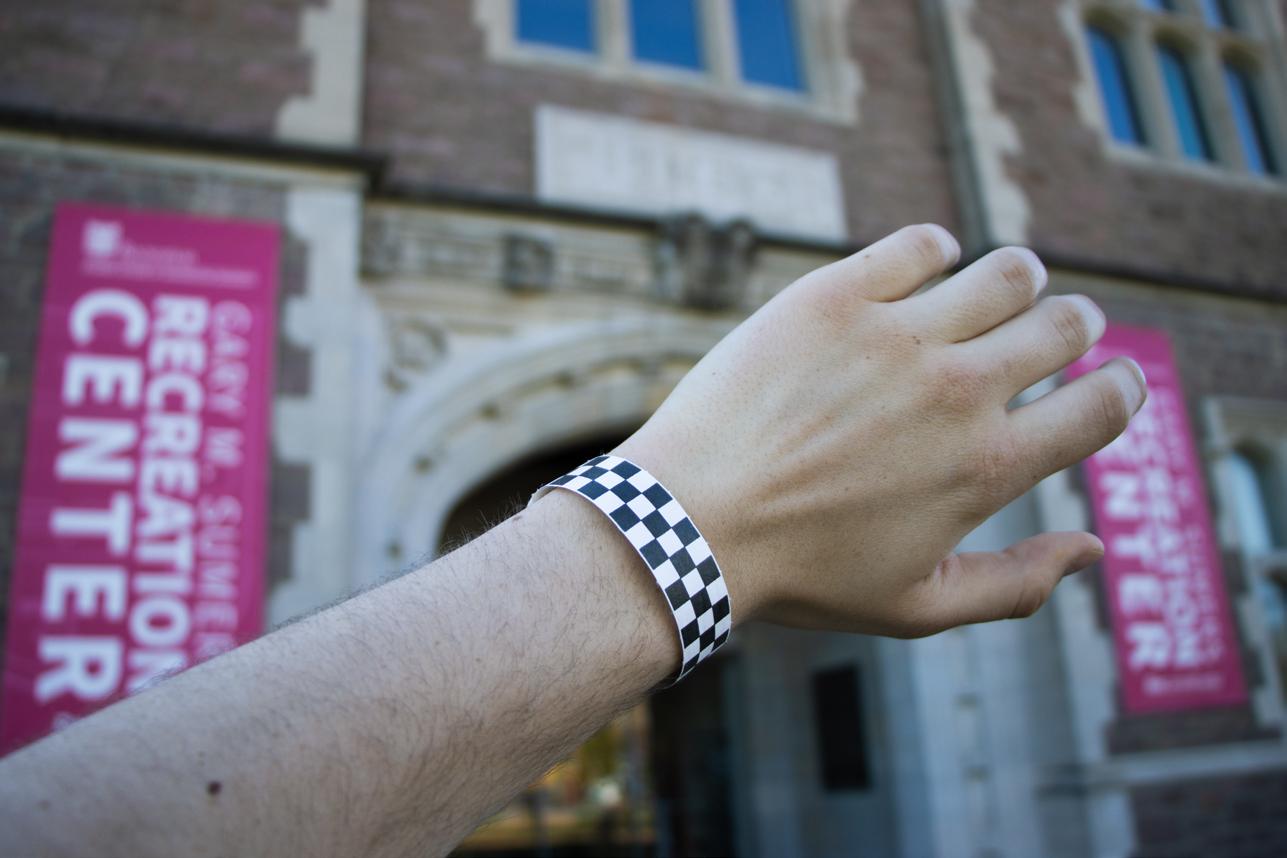
Over the past few months the facility has dealt with numerous instances of individuals unaffiliated with the university sneaking in and making use of their recreational spaces and equipment without permission.
“We’re fortunate to have such a heavily utilized facility that supports the healthy excellence of our WashU community,”
said Bryan Lenz, Senior Associate Athletic Director of Recreation. “Our merged, multi-purpose Athletic Complex and Sumers Rec Center is a bit of a labyrinth with many exterior doors, which
creates some access control challenges for us.”
According to a Recreation Center employee, there are 33 entrance points into the Recreation Center. This serves as a major obstacle for efforts to parole the doors and control visitor entry and exit.
“People are tailgating after our student athletes who are coming in through one door. People are holding doors open for people [who are unaffiliated with the university],” said Meghann Feely, WashU’s Assistant Director of Fitness and Wellness.
Feely said that although WashU is “in St. Louis and for St. Louis,” visitor entry without permission is beginning to have an impact on students who wish to use the facility.
“If you are a student who wants to play three on three basketball and your court is taken up by people who snuck in, you are not going to have the chance to play,” Feely said.
Lenz acknowledged Sumers recreation’s small size compared to the number of users, and how that can lead to longer wait times for basketball courts at night. He hopes that the wristbands can be “useful in that space.”
According to an employee, over 1000 of the colorful paper bands are distributed each day they are used by the Recreation Center. Yet, according to student workers it is still unclear on which particular days the policy will be enacted: “Originally, they [management team] said it was just going to be on Sundays. Then, this past week, they did it Friday, Saturday, Sunday, and Tuesday evening,” said one employee.
The wristband policy is not completely new to the facility, with a similar policy implemented during modified COVID operations in 2020–2021. But Lenz said that students and members have been accommodating to the
CONSTITUTION from page 1
discrimination. This issue was referenced in a concurrence written by sophomore Ben Ewer, an Associate Justice on the Council.
Ewer agreed with the decision made in the unanimous opinion but he wrote that the Council should express further rationale to establish precedent for why discrimination was present.
“It is unclear to me how the majority can assert political discrimination is protected under the Equality Clause without a clear standard for what a violation entails,” Ewer wrote.
The Constitutional Council collected evidence by reviewing minutes from that night's Treasury meeting, information from Campus Life, and listening to testimony from the parties involved. Among those who testified was junior Mishka Narasimhan, the Speaker of the Treasury at the time the appeal was made.
“It was clear that the body as a whole exhibited some sort of political bias,” Narasimhan said.
In the opinion, the Council quoted Treasury minutes directly: “‘[t]his Treasury does not feel comfortable funding the speaker due to the nature of his beliefs.’”
In addition, the opinion connected the above quote to Narasimhan’s testimony from the hearing: “This
accords with the Speaker of the Treasury’s testimony that the speaker's political beliefs were a factor in the body’s decision not to fund the speech.”
Some representatives argued that the quote generalized the decision making process, especially given that it was not said by a representative during the meeting. Narasimhan added it to the minutes document after the meeting to add context.
“I just added that in because I thought it would make the minutes more comprehensive,” Narasimhan said. “It is a generalization, it wasn’t that X number of Treasury representatives believed that, but it was one of the general arguments that came up.”
Junior Jason Zhang, who finished his term on Treasury at the end of this semester, expressed disagreement with the decision because it relied on the quote from the minutes. Zhang was one of five Treasury representatives who testified at the hearing.
“No one explicitly said as rationale that we should not fund the speaker because of their views,” Zhang said.
Zhang stated that he believed that the decision Treasury made was the correct one.
“If I could go back in time,” Zhang said, “I would probably still make the same
decision as before, because I think the rationale that Treasury used was solid. The decision was made because of the cost of the speaker and some of the safety concerns associated with the speaker.”
Narasimhan explained that representatives were messaging in a Slack channel during the discussion about a statement Laffer made where he said that certain minority groups were not worth paying $15 an hour.
“[Texting in the Slack] was unorthodox,” Narasimhan said, “So for the sake of comprehension I thought I would include it in the minutes, but it isn’t part of our procedure, and honestly, it shouldn’t be. We're not here to have two separate discussions: one in front of the student group and one not in front of the student group.”
The ruling to “vacate” Treasury’s decision means that the appeal has been removed from their ongoing record, which is significant because typically Treasury representatives rely on precedent when they make decisions about how to fund similar appeals in the future.
Even though the Council determined that Treasury’s decision was unconstitutional, they did not remand the decision, which would result in the appeal being sent back to Treasury for reconsideration, nor did they choose to fund the
wristbands, particularly when they understand the rationale why: “to enhance the equity and security of the facility,” he said.
Lenz said that going forward, “wristbands are something we’ll use semi-consistently through the end of the semester and then re-evaluate.” He said that right now it has not “been a hassle,” but “a useful mechanism for managing our highly sought after facilities and programming.” But for one student
group themselves because of extenuating circumstances.
Initially, WUCR had presented an appeal that requested a $5,000 honorarium for Laffer to come to campus, which had been negotiated down from his standard $25,000. After the appeal was denied by Treasury, Laffer’s team first told WUCR via email he would be willing to speak for free, but Laffer followed up one day later and said that he was no longer willing to speak at WashU.
Junior Nathaniel Hope, WUCR President, explained that Laffer was upset with Treasury’s decision and concerned about potential protests, saying that the decision “put a bad taste in [his] mouth.”
Hope said that WUCR is currently trying to raise the complete $25,000 honorarium after Laffer’s team told him they believed it was a “real offer,” and The Weidenbaum Center, a public policy and economy research institute at WashU, offered to cover half of the honorarium.
Hope also expressed that he was grateful for the Council’s opinion.
“I am very thankful that groups that may have different ideas or views than Treasury members can now rest in the fact that the Constitutional Council has made it even more specifically clear that we cannot be denied funding
page 2
candidates to show voters that there are “high stakes” in SU elections, which she believes would make students more motivated to vote.
“A lot of times you see a flier, and it says the person’s name and then a photo of them,” Wierich said. “But what’s different between them and the person next to them? [SU should] differentiate between candidates so that you actually care about who’s running.”
employee, who chose to remain anonymous, the policy has created added “stress for staff and irritation for some guests.”
“People are making comments — like, this is so dumb,” said the employee. “I’m sitting there just trying to do my job.”
Editor-in-Chief Clara Richards and Managing News Editor Avi Holzman also contributed to the reporting of this article.
Carrigan added that SU hopes to increase transparency about internal operations to make students more invested, which he believes could result in higher voter turnout.
“Once people start to understand what we do, maybe they’ll vote, maybe they won’t,” Carrigan said. “But to that extent, I think people need to actually care about these elections. We see a lot of uproar about voting decisions made by SU … If you don’t want that to happen, you can vote.”
on the basis of our beliefs,” Hope said.
He continued by explaining how this decision will impact other student groups.
“This protection isn't just for College Republicans but for groups on campus whose viewpoints might not be as common in the entire student body,” Hope said. “So this has the effect of helping marginalized groups.”
Narasimhan stated that she believes there are potential changes that will reduce potential bias in speaker appeals, such as allocating funding without knowing who the proposed speaker is.
“These speaker appeals basically put us in situations where we control whether this event happens or not,” Narasimhan said. “By proxy, we are programming for the group, which is not our role.”
Thinking ahead to next fall, Narasimhan stated she believes it will be crucial for the next Speaker to host a discussion about the WUCR appeal, given that the Council’s opinion came out after their final meeting, relating this appeal to the Amala Ekpunobi issue from last semester.
“How we can take these two extremes and go forward in some sort of middle ground that will appease both the student group and the student body is a huge question,”
Narasimhan said. “But we have to tackle it and we now have a lot of evidence to help us.”
Narasimhan explained the difficult balance that Treasury representatives are faced with appeals for political speakers.
“We're given our power because the student body votes us into these positions,” Narasimhan said. “Some might argue that because our roles involve allocating [the Student Activities Fee], we have the right to make political decisions, but we're still bound to the constraints of the constitution, which has specific guidelines on equality. Treasury representatives are in a tough situation when you have to balance what your constituents might believe politically with what our constitution outlines as our goals.”
A representative from the Constitutional Council declined to comment, citing their standard policy not to comment on their cases.
Disclaimer: Tim Mellman is Student Life’s Newsletter Editor as well as a regularly contributing photographer who has taken photos of SU meetings throughout the year. He did not attend the Treasury meeting on March 21 on behalf of the newspaper, nor did he contribute to writing or editing this article.
Manager huffs@studlife.com

In 2016, The Riverfront Times (RFT) published an article about four Syrian refugees, none older than 15 years-old, who were attacked outside of their apartment complex. This occurred on the 1100 block of Hodiamont, a four-minute drive from Washington University’s Danforth Campus.
One of the many people reading the Riverfront Times that morning was a woman named Jessica Bueler. She saw the article, and instead of just turning the page and forgetting the horror she felt, Bueler decided to take action.
Bueler began what was originally a one-time toiletry supply drive for refugees that turned into a non-profit organization called Welcome Neighbor STL. Welcome Neighbor’s mission statement, according to their website, is to “partner with refugee and immigrant families, connecting them with the people and opportunities that will empower them to build and live their best life in their new country.”
In the six and a half years since this organization started, Welcome Neighbor
STL has hosted 230 events, raised nearly $500,000, paired 60 refugee families with about 200 volunteers, and paired 33 students with 22 tutors to help them learn English. Of this nearly $500,000, a minimum of 90% of all proceeds go directly back to refugee cooks. Last year, Welcome Neighbor STL was the community partner for WashU’s Thurtene Carnival where 100% of the profits directly supported refugees.
Fatuma Ibrahim, a firstyear student at WashU, is currently a spring intern for Welcome Neighbor. Born in Kenya Kakuma camp, one of the largest refugee camps in Kenya, Ibrahim
and her family moved to the United States when she was eight years old. Her parents fled the Somali Civil War and lived in multiple different refugee camps. They had over “20 plus years … of having … no permanent home and just no security,” Ibrahim said. This touched Ibrahim, making her want to “find a way to help people who are going through the same process.”
Ibrahim explained that when searching for a college, all she knew was that she wanted to study something that would eventually enable her to work directly with refugees.
“I can actually put this into practice and use my own personal story since I am a refugee,” Ibrahim said.
When Ibrahim, a prospective major in Global Studies and Chinese, was looking through the Global Studies newsletter, she found information about an internship with Welcome Neighbor. Despite the worry that
Two of Washington University’s a cappella groups moved onto this year’s Midwest International Championship of Collegiate A Cappella (ICCA) Semifinals at the 560 Music Center on April 1.
Mosaic Whispers kicked off the Semifinals with its monologue about love and grief. Its song arrangement included “Music For A Sushi Restaurant” by Harry Styles, the bridge of “The 30th” by Billie Eilish, and “Ceilings” by Lizzy McAlpine. The performance was heartfelt and genuine, and the crowd was moving with the flow.
Leading up to the semifinals, the Whispers’ members added daily rehearsals on top of their normal time spent practicing, which is around six hours a week.
“Prior to semifinals, I was a pretty timid soloist that didn’t have the best stage presence, and I never had to do a musical piece that involved 10 minutes of dancing,” Kidist Taye, one of the soloists in Whispers, said.
She learned a lot from the senior members of Whispers, including Noah Maguigad, Will Skubish,
and Natalie Feldstein, on how to make her craft authentic and create art with her closest friends.
Taye is thankful that the semifinal experience brought the group closer than ever, with a deeper connection established through music.
“We experienced so much laughter and cries, and I would love to do it all over again,” Taye said.
The other WashU group that performed was The Amateurs, an award-winning, all-gender collegiate a cappella group. It performed an elaborate arrangement of “Intro” by Chloe x Halle, “Bass Song” by Eryn Allen Kane, “Woods” by Bon Iver, and “Ride” by Lana Del Rey. Dressed in black and white, the Amateurs transformed the stage into a story of understanding one’s self and accepting one’s emotions.
The storyline becomes apparent by the end of the first song, which finishes with the question “will you ever love?” and transitions into the second song, “Bass Song,” which is about escaping into nature to find oneself.
“Overall, I think it’s really about exploring emotion and the tolls it can take on people, but also how emotion, bad and good, is
what makes us human.”
Grace Brady, a junior in the Amateurs, said.. Brady shared that the Amateurs members were excited going into the performance, and she thought it was one of their more confident runs.
“Learning, performing, and working on this set has been such a great experience. Personally, I feel like I’ve improved from it, and I think overall it has brought us together,” Brady said.
The a cappella groups were examined by four judges, who are all experienced vocalists and accomplished performers. The groups were evaluated on factors of vocal and visual performance, and special awards that recognize exceptional vocals, arrangement, and choreography were given out at the end.
Mosaic Whispers secured third place in the Semifinals, while Case in Point from Case Western University won second, and The Ohio State of Mind from Ohio State University took first and claimed a spot for the ICCA finals happening in New York City. Eli Cohen from Mosaic Whispers also won the award for Outstanding Vocal Percussion.
ILLUSTRATIONS BY SOPHIE LEONGas a first-year she did not have enough experience for this internship, she applied on a whim. Welcome Neighbor was “very nice and welcoming” and told Ibrahim that they needed more voices like hers to better connect with refugees. She got the internship.
On March 29, 2023, Welcome Neighbor STL put forth their second Big Supper Club, a spin on their regular Supper Club events. At the typical Super Club events, one of Welcome Neighbor’s refugee chefs caters a meal, and the proceeds of the event go directly back to the refugee chef.
For the Big Supper Club event, 10 refugee chefs came together to make 11 different dishes as a fundraiser for anyone in St. Louis to come enjoy. These dishes included Syrian Kibbeh (ground beef, onions, bulgur wheat, salt, and spices), Iraqi Dolma (grape leaves stuffed with rice, onions, herbs, and spices), Afghan Mantu
(a dumpling filled with lentils, vegetables, herbs, and spices), and Indian Biryani (rice, chicken, vegetables, yogurt, herbs, and Indian spices). To cap off this delicious buffet, the dessert consisted of South African Melkhert (a creamy milk tart topped off with cinnamon) and Syrian Baklava (flaky phyllo dough filled with sweet pistachios, ghee, and sugar syrup).
In addition to experiencing this delicious meal, three of the refugee families that Welcome Neighbor STL works with shared their stories in the form of videos. From language barriers to inaccessibility to transportation, these
videos highlighted some of the issues that many refugees deal with. One refugee explained that it was “difficult to start over alone in” a new country, and Welcome Neighbor allowed his family to join a “big team, big family.” Ibrahim attests to this big family community feel.
“The passion [Welcome Neighbor STL] has for their families … the dedication and compassion really touched my heart,” Ibrahim said.
On the night of Big Supper Club, each of the attendees and chefs came together to rejoice in community and culture through a shared appreciation for food. For anyone looking to attend the next Supper Club, here is more information, and here are other ways to get involved. In addition to making donations to help with emergency funds, you can also sign up to be an ESL Tutor or volunteer at the Supper Club and various other events.
According to Ibrahim, “passion is what drives you to continue doing more and improving.” Welcome Neighbor STL carries that passion to continue growing the community for refugees in the area.
Washington University Bridge Club has made a name for itself nationally. They’re ranked second in the country, and the team has found success due to a farsighted and distinctly inclusive strategy. In fact, WashU Bridge doesn’t even set out to win tournaments —instead, it takes a unique approach to bridge that emphasizes the game’s cooperative aspects.
WashU Bridge Club is one of the largest organizations on campus, boasting 300 members who meet twice weekly to play and discuss bridge. Each meeting, no matter how far into the semester, starts with introductions, icebreakers, and pizza. There are no rankings within the team, and less experienced players are given spots in tournaments regardless of the potential effects on the team’s total scores. These inclusive efforts, first-year club president Stephanie Bergman said, make WashU Bridge’s community “the best one of any I’ve seen.”
But how does pizza translate into national success in a mentally challenging game? The key lies in passing the torch to new players.

According to Bergman, their system creates good
players who are even better than those who taught them. “It’s a cycle. You have people who are good, then new people come, and the good people teach the people who are beginners,” she said.
This cycle is intentional. More experienced members hold Zoom sessions that teach core lessons of bridge to new players, and every meeting has a teaching table that introduces a novel tactic each day.
Practice is key in bridge, and WashU players get plenty through dedicated meetings and rapid-fire games.
“It’s less about how fast you can think and more about how much you can learn,” Bergman said.
While it may seem daunting to initially learn the game, Bergman compares it to something simpler: The Lego Movie’s protagonist Emmet Brickowski. She explains that Emmet originally saw bricks as only individual objects meant to be used according to instructions, but by the end, he became more inventive.
“He started seeing things that he hadn’t seen before. It wasn’t because he suddenly became smarter. It was because of practice and the mindset in practice,” Bergman said.
Lego bricks aside, WashU Bridge Club’s methods have paid off, and their
cooperative strategy meshes well with bridge’s distinctly competitive format. In collegiate bridge, each school sends a 20-player team ––in 10 pairs of two –– that earn points for their school through a rotation of several matches. The team’s total score is the combined points of the 10 pairs, meaning that each player’s score is equally weighted, and having depth on your team is vital to success.
No.1 ranked Georgia Tech takes a different approach to training than WashU, holding more frequent and rigorous practices for a select few top players paired with mentorship from world- class bridge players.
WashU’s team gains experience from older players in a different way: the St. Louis Bridge Center, where local St. Louis residents play with other bridge enthusiasts. “The locals are really welcoming. They love to see young people in Bridge,” Bergman said.
“They usually crush us. Most of them are life masters,” Bergman said. “We practice a lot but it can’t compare to someone who has spent decades on it.”
Nonetheless, WashU Bridge Club’s success has shown there is more than one way to succeed in bridge.
“It’s special. It makes us proud,” Bergman said.
For the first time in over ten years of competition, the Washington University Raas dance team brought home numerous trophies from bid competitions in the collegiate competitive circuit. Their success in these competitions moved them up to be ranked thirteenth in the country— three spots away from an opportunity to compete at Raas All-Stars, the annual Raas-Garba collegiate national championship in Chicago.
After attending four competitions throughout January and February, the team of 16 dancers won second place at Sanedo on Jan. 21st and third place at Gateway to Raas on Feb. 25. The team began to prepare for competition in September and recruited nine additional members. With just seven returning members, the team was largely composed of new dancers who would have to be trained and taught choreography.
“It was stressful at first for both me and Isa, my co-captain, because we wanted to make sure that we were able to teach all of our new members the necessary skills to be able to perform for both Diwali and for competition later in the spring,” co-captain and senior Rohan Ravirala said. “The week we came back we practiced 12 to 14 hours.”
All teams in the would

produce a seven-to-eightminute choreography routine, as well as design set pieces to go along with their theme. This year, the team performed an Alicein-Wonderland themed set.
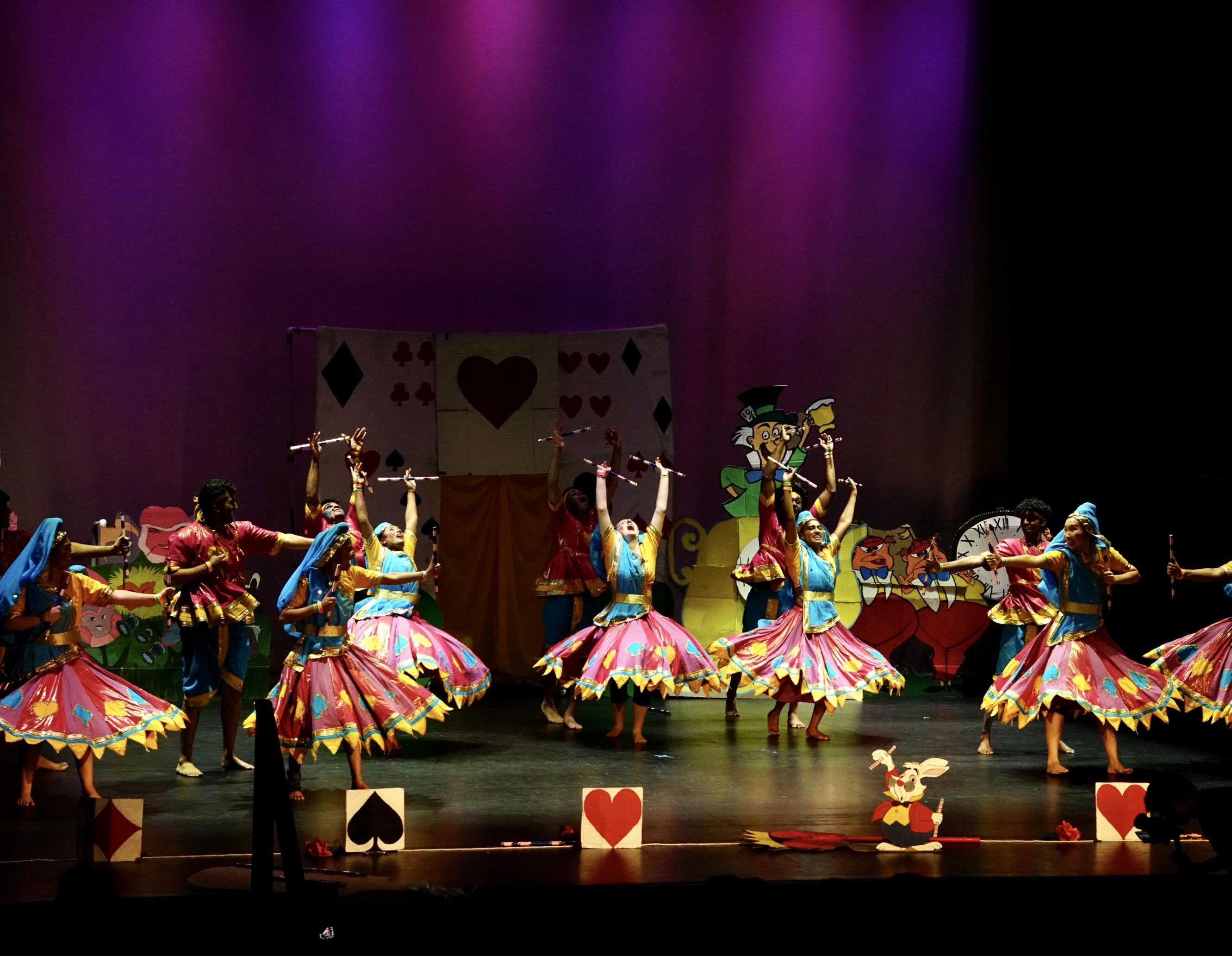
“When you dance, the reason you have a theme is to have a story. Your background is related to your theme. Your costumes are related to your theme.

Your props are related to your theme,” co-captain and senior Isa D’Ottone said.
Victorious with second place at Sanedo in UC San
Diego, the team placed in their first bid competition in five years. “I heard them call third place, and I was sad because it felt like our only shot. It looked a little hopeless. Then we heard them call second. I saw everyone just sort of jumping up and down, and they called WashU Raas. I couldn’t believe what was happening,” first-year Faizan Noorani said.
Contrast to traditional Dandiya Raas, which has a lot of smooth flowy motions, the competitive
Raas Garba dance style requires a lot of intensity and explosiveness.
“It’s very, very high energy and intense if you can imagine a HIIT workout, but for like seven minutes straight, instead of being like smaller intervals. Then there’s the footwork. After that, we have the arm movements and the head and neck movements. What separates the teams is the formations,” secretary and junior Ashwini Murthy said.
Following their success at Sanedo, the team
SPONSORED BY:




competed at three more competitions, ending their competitive run at Gateway to Raas at Saint Louis University. Cheered on by several alumni who came to watch the performance, the team placed third, marking the first time in the club’s history where the team has placed in multiple competitions in a year.
“All those people who were on the team when Rohan and I were first-year students had their moment of placing because the year before Rohan and I joined, we placed and were like ‘Oh
we’re gonna do that again,’ and it always felt like we never got there,” D’Ottone said, “so it was a great circular moment to come back to placing again.”
The members attribute their success to the welcoming environment and lively spirit created by the team. The motto “Raas means family” is cited throughout interviews by many of the Raas dancers.
“We’ve never set expectations for these competitions. We always go just to have fun and to have a better set every time. This year, we had a good attitude. Everyone got along really well, and practices were really fun and focused,” Ravirala said.
Adding onto Ravirala, Noorani said, “I’m excited because we do have a large batch of these freshmen and sophomores who just joined the team. We’ve already done a pretty significant job in the history of Raas so far, and to have the team composed of like half freshman and sophomores, moving forward, I think we could truly make a big impact.”


Content warning: This article discusses sexual violence and contains sensitive language regarding unwanted sexual contact. See the editor’s note below the article for resources.
Maybe you did a quick Google search of “WashU safety” before committing to this university. Maybe you’ve overheard a Washington University parent ask about student safety on a campus tour. Maybe you’ve even seen the Reddit threads of WashU applicants asking how safe the campus is.
In each of these instances, the violence in question is often portrayed as something coming from outside of the WashU bubble, perpetuated by strangers — never students. Narratives of St. Louis as an “unsafe” city that circulate campus influence our perceptions of violence: both how we define it, as well as where we think it comes from. Is WashU safe? If we reframe our understanding of what “violence” is and what forms it can take, the answer to that question becomes much more complicated.
When considering campus safety, we often exclude sexual assault from our definitions of violence, despite its prevalence on our campus. According to WashU’s 2019 campus climate survey, 13% of WashU students — and 27% of WashU undergraduate women — responded that they had experienced “penetration or sexual touching involving
physical force, inability to consent or stop what was happening, or attempted penetration by force.” An even larger percentage of undergraduate women — 42.5% — experienced “nonconsensual sexual contact using physical force, inability to consent, or coercion without voluntary agreement” during their four years at WashU. And these numbers are likely lower than the reality due to how survivors often do not identify their experiences as sexual violence, even if their experiences fit a survey’s definition. Violence is more likely to come from someone you know — especially on college campuses, where the survivor knows their perpetrator in 90% of reported cases. Survivors who know their perpetrator may not tell anyone or may wait months or years to disclose assault for a variety of factors, such as fearing their own safety in future interactions with that person as well as the reality that a relationship with a oncetrusted individual does not necessarily disappear overnight.
Narratives of violence as solely coming from strangers fail to account for the complexities that may arise in instances of violence from someone you know. These misconceptions further perpetuate victimblaming rhetoric that only increase the feelings of guilt and shame that further discourage survivors from reporting sexual violence. We therefore have to challenge our very definitions of violence itself. If we imagine violence as strictly physical
or forceful in nature, for example, we omit the various ways violence can manifest, especially in the realm of gender-based violence, through dynamics of coercion or emotional abuse.
Two years ago, during my first year at WashU, I wrote an article reflecting on the 2,505 purple pinwheels lining Mudd Field to represent survivors of sexual violence on our campus. I concluded with my hope that, despite the need for larger, systemic change, individual action can have significant impacts in approaching campus violence.
Read the rest online:
The Sexual Assault and Rape Anonymous Helpline (S.A.R.A.H) provides confidential and anonymous support regarding sexual assault, sexual harassment, intimate partner and sexual violence, relationships, and mental and sexual health. It can be reached at 314935-8080 24/7 during the fall and spring academic semesters.
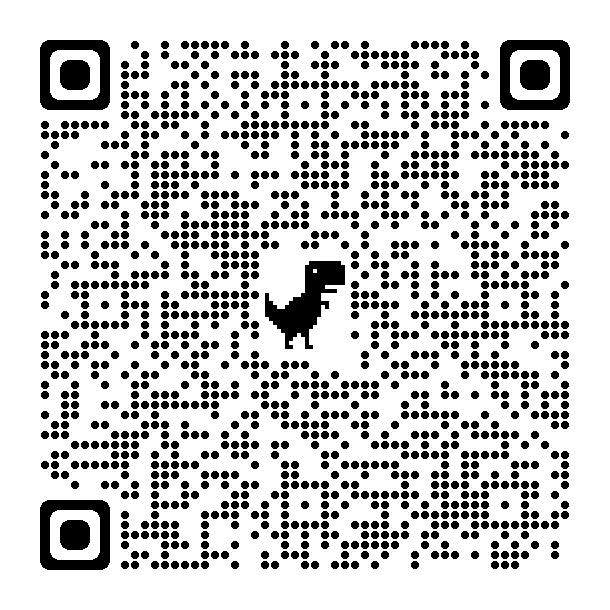


There are counselors at the Relationship and Sexual Violence Prevention (RSVP) Center, located in Seigle Hall, Suite 435, available confidentially to any University student. The office can be reached at 314-935-3445 or by email at rsvpcenter@ wustl.edu.
The National Sexual Assault Hotline can be reached at 1-800656-4673 or via online chat 24/7.
SYLVIE RICHARDS SENIOR FORUM EDITOREarlier this month, I was doing my weekly bout of online shopping in which I add things to my cart then leave them there to perish in the depths of the internet. As I was scrolling through Urban Outfitters, I came upon a simple black t-shirt with small yellow words reading “F*CK NEPOTISM” in all capital letters. I spent a long time looking at the shirt, questioning many things: Why was this shirt made? Why did the designer choose to f*ck nepotism as opposed to countless other urgent social issues?
Why would someone pay 30 dollars for a black t-shirt with small words in Arial font?
So, as the clothes rotted in Google Chrome, I went on a deep dive into what it is about nepotism that prompted this interesting fashion choice.
At the beginning of 2022, young people on social media, particularly TikTok, began to “expose,” or at least emphasize, celebrity “nepotism babies” — stars who rose to fame with the help of relatives or parents in the entertainment industry. A viral social media post about Maude Apatow, most known for her role as Lexi on the show “Euphoria,” and her “nepo baby” status as the daughter of famous director Judd Apatow and actress Leslie Mann started the nepo baby phenomenon. It unlocked the gate to a flood of posts about nepo baby celebrities, including Timothée Chalamet, Kendall and Kylie Jenner, Lily-Rose Depp, and Hailey Bieber (who rocked her own nepotism-themed attire when she wore a crop top reading “Nepo Baby”).
Some celebrities have been excused, as they have
presumably proven their true talent and/or acknowledged their privilege. Regardless, the critique remains — they gained nearly instant fame because of their familial connections, while it takes most people years of hard work and struggle to get to the same position, if ever.
Vulture called 2022 “The Year of the Nepo Baby,” while a late-December issue of New York Magazine had an on-the-nose cover depicting babies with the faces of nepotism-born celebrities and the phrase “She Has Her Mother’s Eyes, And Agent.” Calling it “Hollywood’s Baby Boom,” the magazine cover brought attention to the 2022 nepo baby craze. The Oscars brought this conversation into the new year, as Jamie Lee Curtis won Best Supporting Actress for her role in “Everything Everywhere All at Once.” Both of Curtis’ parents have been nominated for an Oscar, making Curtis the prototypical nepotism baby.
Quickly, critics accused Curtis of winning because of her parents’ fame, displacing more deserving nominees, such as Stephanie Hsu for her role in the same movie, or Angela Bassett for her role in “Black Panther: Wakanda Forever.” For example, writer and activist Ola Ojewumi tweeted, “#OscarsSoWhite Veteran and Yale School of Drama trained actress Angela Bassett loses Best Supporting Actress Oscar to admitted Hollywood nepo baby Jamie Lee Curtis? … Never say white or wealth privilege doesn’t exist.”
I agree that the issue of nepotism deserves discussion, and that it is an injustice that pervades our society.
However, the flood of nepo baby celebrity critiques has drowned out crucial
discussions of nepotism outside of Hollywood, along with a broader conversation on systemic advantages resulting from white privilege and wealth disparity. Especially as many who are participating in the conversation are themselves white and wealthy, this conversation is not forcing them to reckon with their own privilege.
Nepotism has long existed inside and outside of Hollywood. People with familial networks gain a foothold in high-paying jobs of all kinds without having to work as hard as their counterparts. Universities (especially “prestigious” ones) also give weight to legacy students, which in turn grants them with an even greater network that provides them a leg-up in obtaining success and wealth. Politics is permeated with nepotism. A Washington Post article claims the son of a senator is 8,500 times more likely than the average male American to also be one. If it means that a small number of families have power over our everyday lives, rather than just a chokehold on our Netflix diet, the nepo-political world is scarier than the celebrity one.
One may see nepotism as justified, with claims that those with family in a certain career understand the industry and job and are therefore more qualified. Yet nepo babies aren’t necessarily more qualified at all — they may know more about what the experience of
Read the rest online:

Softball bests Carnegie Mellon in a four-game series
The Washington University softball team beat Carnegie Mellon University in a fourgame University Athletic Association (UAA) conference series. With the series victory, the Bears improved to a 13-15 overall record for the season, with a 5-7 record in conference play.
“This is just what this team is capable of doing,” sophomore Maggie Baumstark said after the WashU softball team’s two-game sweep against Carnegie Mellon University Saturday, April 8. “[There are] lot of different reasons why [we haven’t been playing like this], but this is how we know we can play. So it feels good to just be ourselves again.”

Losing to Carnegie in their first game of the series Friday, April 7, softball head coach Casey Cromwell was proud of her team’s rebound performance on Saturday and Sunday to win the series.
“I feel like [we’re] consistently doing the right things and we’ve had a lot of close ballgames,” Cromwell said after the Bears’ 2-0 sweep against the Tartans Saturday afternoon. “The UAA is a tough conference, and everything’s going to be gritty wins. [But the wins] speak volumes to our resilience, our persistent pursuit of excellence, and doing the right thing.”
On Friday evening, the Bears had a tough one-run loss to start off the series. That night, Cromwell said her mentality was to “stay the course.”
“We keep doing the right things,” she said. “It’s just losing by a run. It’s one small win somewhere. And there are a lot of small wins across the board and we’re sharing
the wealth and those wins on the small end. So stay the course.”
During the first game on Saturday, the Bears struggled to get on the board early on, but sophomore pitcher Jordan Rossi kept the bats quiet after a run in the first inning. She threw seven innings, and the WashU bats finally responded in the sixth, when Paytin Irwin brought in two runs. WashU took a 2-1 lead that held until the end of the game.
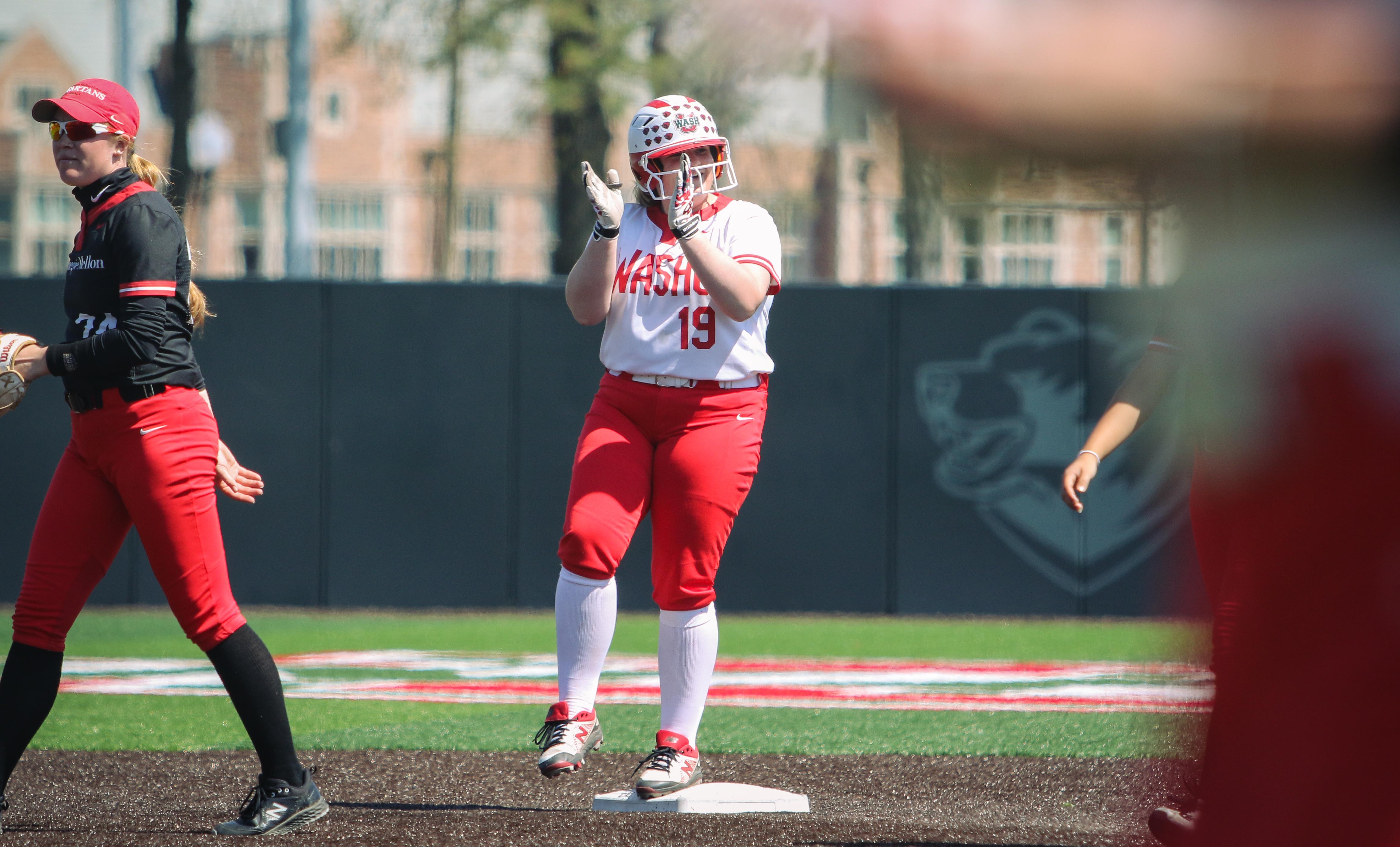
Going into the second game of the afternoon, the Bears charged into the late Saturday game with a strong offensive effort. They put themselves on the board first, scoring three runs in the bottom of the second inning.
While Carnegie Mellon retaliated in the middle innings, putting up runs in the third
SCHOOL from page 1
be highly collaborative and interdisciplinary, which is a core component of Here and Next, the University’s academic plan that emphasizes an integrative approach to education.Debra Haire-Joshu, who holds the Joyce and Chauncy Buchheit Professorship in Public Health, has been appointed as one of two faculty leads to advance the implementation planning for the new school.
Haire-Joshu said increased education on public health became a necessity after the COVID-19 pandemic.
“We’re coming out of a pandemic, so we really had a snap course on how important public health is,” Haire-Joshu said. “We have about 350+ investigators all across the university who do some kind of public-health research. That’s spread out over the Brown School, the School of Law, the undergraduate schools, and especially the School of Medicine. We believe it's time to really pull the facets together so that the sum of what we're doing is greater than the many parts.”
Haire-Joshu said that increasing health equity is another priority of the University, and having a dedicated School of Public Health would help pool resources to assist in research, particularly for disadvantaged groups.
“A lot of our prevention work is [based] around
policy work,” Haire-Joshu said. “COVID has pointed out many inequities, and some people were just hit much harder than others by COVID. Public health really works towards eliminating those disparities.”
She said the process of creating the new school is streamlined by the existing strengths in the School of Medicine and Brown School. She explained that the accreditation process for the program is underway, and an application for a new school will be submitted to the Council on Education for Public Health (CEPH) in 2024. Pending the review process, CEPH will ideally fully accredit the new school in 2026.
In terms of the new school’s physical location, Haire-Joshu said it has not been determined yet, beyond the pre-existing facilities in the Brown School.
“We get asked that all the time, but there’s been no decision yet. It’s several years out,” Haire-Joshu said.
“Right now, we’re housed in Hillman, but obviously, the school will grow. I think [that] for right now, we’re more focused on getting the school going, [so] conversations about where the school will be are not imminent.”
The new undergraduate major is being planned out to avoid a negative impact on similar majors, such as Global Health & Environment and
and sixth to tie the game, Wong doubled to bring in Baumstark for the winning run.
“It feels great [to beat Carnegie Mellon],” Gould said. “We finally took two games in a row — which I don’t believe we’ve done yet this season. So it’s a great feeling to leave the field knowing that we gave it our all.”
The Bears returned to the field on Sunday morning. The matchup was a pitcher’s duel for the first five and a half innings, with neither team able to push across a run.
Jordan Rossi, who pitched fourteen innings in two days, kept the mound locked down once again for a zero ERA afternoon. The Bears’ offense found success in the sixth inning, when sophomore Natalia Pilpil hit a single to bring Gould home. Junior
Health Administration.
In regards to how the new major will affect enrollment in other subjects, Anthropology Professor Tristram R. Kidder said that students will pick and choose what aspects of health they want to involve themselves in based on their interests.
“Some students will want to stay in anthropology,” Kidder said. “Some students are going to stay in biology, and some students may decide that public health is really what they want to focus on. Ultimately, the students are going to decide in the long run what they want to do and what they find interesting.”
Along with students, faculty will also have the opportunity to practice more interdisciplinary ways of teaching. Kidder said that professors will be able to do joint-appointments, where they can teach in two different fields of study. While professors in jointappointments already exist, typically, their two fields are within the same school division, whereas the School of Public Health will make it more common to connect two different schools.
“A faculty member in Environmental Studies might end up with a parttime appointment in Public Health,” Kidder said. “She would have a feel on both sides of the intellectual program. So you could see a model where, for example, an
Ashley Kennedy followed with a double to push the score to 2-0, and the Tartans were unable to answer the two run inning from WashU.
English professor who teaches about health, morality, and sexuality in Victorian England could be teaching in the Public Health major while still being a professor of English.”
Kidder said that, along with the more clearcut connections like the University’s Medical School and Brown School, less obviously related divisions such as the McKelvey School of Engineering and the Sam Fox School of Art and Design will be involved with the School of Public Health.
“I think [that] looking at the intersection of health, equity, social justice, and politics will be very interesting,” Kidder said. “I could envision a world where a student who's interested in graphic communication wants to get a degree [in public health] because she’s also interested in healthrelated communication.”
In regards to how many students are projected to study in the new school at the undergraduate level, Kidder said a comparable model is the Global Health & Environment major, which has a couple hundred students.
First-year student Emanoeel Ghabrial, who majors in Biomedical Engineering, said he would be interested in public health — especially as a pre-med student.
“Public health tends to
play into medicine,” Ghabrial said. “I mean, it's in the name — public health, right? A good number of WashU students are pre-med, and I feel like public health is something that a lot of people would be interested in exploring to some degree, including me.”
Haire-Joshu said the model of public health that the University wants to develop stands out from other universities because of its strong focus on team science, which is science that utilizes cross-disciplinary work to solve complicated issues.
“It’s kind of a new model, which is why it’s taking some time,” Haire-Joshu said. “A lot of universities have a very siloed model of public health. We have an opportunity here because it's coming out of strategic planning, to really try to design it around team science. Team science is the only thing that's going to work with complex problems.”
Kidder said that the interdisciplinary aspects of education are going to make the new school not only effective in terms of finding solutions but also in instructing students.
“I want all of our students to come away with a broad education that exposes them to various modes of inquiry,” Kidder said. “How to think about humans, how to think about the natural world, how to think about how those interact. I also want them to appreciate the historical,
performance. The 3-1 record for the weekend against Carnegie Mellon put them in second in conference play.
social, political, [and] economic context of various decisions about health.” Ghabrial said interdisciplinary education would help in combating ignorance, and that having a theoretical requirement in some kind of public healthrelated course could help pre-med students.
“I feel like ignorance is a big issue in general,” Ghabrial said. “Just in any topic, really. It would help people understand more about public health. I don't know enough [about public health], and I know that, and I wish I knew more.”
Provost and Executive Vice Chancellor for Academic Affairs Beverly Wendland said the school has a key opportunity to address healthrelated disparities with the new School of Public Health.
“In our region, we see major disparities by race and zip code around infant mortality, lead exposure, and malnutrition,” Wendland said. “We have such talented faculty in public health, and we are in a position to expand the scale of our research and educational programming.
The creation of a new school, in partnership with our community, will enable us to develop local solutions that we [utilize] globally, and our global partnerships can inform the work we do in our region and in our nation.”


In the second game, sophomore Sebastian Guzman got his third win of the season, going 6-and-a-third innings while giving up just two runs. NYU kept it close until the ninth, when the Bears exploded for five runs. The Bears were not able to get the series sweep on Sunday, but the 3-1 win meant a lot to the team— they hadn’t won a series versus their UAA rivals since 2018. In last season’s series, outfielder Magnus Dunn was ejected during a game where tempers flared on both sides.
“We went into the games knowing that they were going to talk. We knew that they were going to play their brand of baseball, and we just kind of prepared for that,” said Goldberg. “We

showed up, and I’m proud of the guys.”
Lacking the elite starting pitching that defined the pre-pandemic Bears squads and starting a number of underclassmen, WashU baseball had its share of question marks entering the season. Yet led by the the emergence of the freshmen middle infield tandem Pellegrino and Chris Jacinto, the consistency of the junior class infielders including Harry Mauterer and Clayton Miller, and the stable pitching from Will Henkel, Matt Lopes and Guzman, the Bears have found different ways to win – at the plate, on the mound, and on the basepaths.
Sophomore Henkel, who started Wednesday’s non conference win against Rose-Hulman
Bears’ rotation have been aided by an impressive lineup. Seven regulars are hitting .300 or better, and six have swiped seven or more bases. This season, the speedster Dunn has led the way with 16 stolen bases, good enough to lead the UAA – and he’s only been thrown out once. Dunn helped WashU secure two wins on Saturday with his baserunning, stealing four bases and scoring three runs, including one on a wild pitch. He also made a great throw to nail what would have been the tying run at the plate during the third game of the series.

Pellegrino was also dominant this weekend, recording six hits, five RBIs, and three runs. While the freshman shortstop has led the way
for the Houston, Texas native at the beginning of the year. A torn labrum and rotator cuff sidelined Pellegrino through much of the offseason, and he was fully cleared for practice just three weeks before the start of the season.

Pellegrino is joined in the middle infield by freshman second baseman Jacinto, a fellow Texan. The two have known each other ever since they first played baseball together a decade ago. Jacinto and Pellegrino had played travel ball with each other for years prior to coming to WashU; now, the two room together.
“We have really strong chemistry,” said Pellegrino. “I feel really comfortable with Chris out there because I’m someone that I’m able trust a lot.
there.” Jacinto shared similar sentiments, rec ognizing the bond the two have on and off Much like Pellegrino, Jacinto knew it would be an uphill climb to getting playing time. But since cracking the lineup, Jacinto has been a consis tent force for the Bears with


glove and his bat. While the loss on Sunday may have left a sour taste in the team’s mouth, the squad had a great experience in New York as a whole. When they were not playing baseball, Pellegrino and Jacinto spent time exploring the city.
“When you’ve been to Clarksville, Arkansas this year, and there’s absolutely nothing going on, and then you get to New York City, and it’s this whole bustling environment, it’s really cool to experience,” said Jacinto.

Pellegrino agreed, calling it a “breathtaking experience” and the highlight of his year thus far.
After a 11-3 win against Rose-Hulman in the team’s midweek non conference matchup, the Bears look to continue their hot streak this week -

that has “struggled a little bit to catch the baseball and throw the baseball.”

“We’ve got to shore up some things defensively on the mound, and it’ll start there,” he said. “We can’t give up free runs. They’re a very, very good team, so we’ll have our work cut out for us.”
WashU needs strong performances in both conference series to get a playoff spot, but the team remains confident. “We’ll definitely get there,” said Pellegrino. Goldberg agreed: “I mean, you gotta be thinking about the postseason, or else why are you playing?”
Editor Clara Richards contributed reporting to this article




